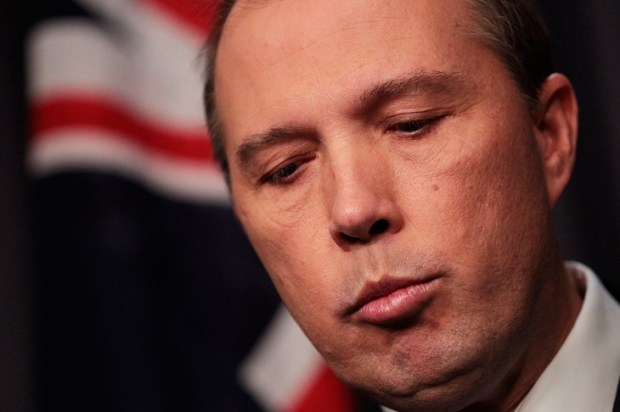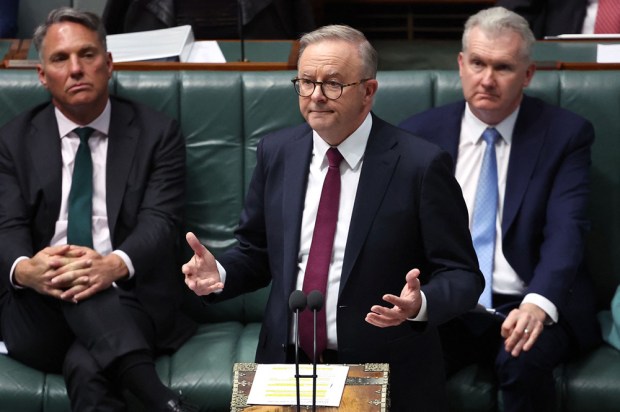A recent edition of the Australian had three long pieces discussing the growing support for amendments to the Constitution to enshrine an indigenous voice to Parliament via a referendum. (‘Moderates push for referendum’, ‘Our Resilient and generous Indigenous deserve a voice’ and ‘Listen to the people as they call for constitutional action’). All the articles supported this idea and there can be no doubt that, before it is kicked into the dustbin of history, we are going to hear a great deal more about this insanity.
You are doubtless familiar with the name and persona of Ken Wyatt. He is of course the Minister for Indigenous Australians. He seems to be a pleasant enough chap and doubtless does his best in what is one of the trickier ministerial portfolios. The names of Sarah Mitchell, Craig Crawford, Gabrielle Williams, Steven Marshall, Steven Dawson, Rachel Steven-Smith and Selena Uibo may not be so familiar. They are all state or territory government ministers tasked with looking after Aboriginal or indigenous affairs. We have eight politicians at the ministerial level whose task is to advance the cause of the first Australians.
The South Australian Premier Steven Marshall has taken on this task and, as ‘The Minister for Aboriginal Affairs and Reconciliation’, proudly tells us he has carriage of the Aboriginal Heritage Act 1988, Aboriginal Lands Parliamentary Standing Committee Act 2003, Aboriginal Lands Trust Act 1966, Aboriginal Lands Trust Act 2013, Anangu Pitjantjatjara Yankunytjatjara Land Rights Act 1981, Maralinga Tjarutja Land Rights Act 1984 and lots of other things as well.
In the Northern Territory, Selena Uibo is the Minister for Aboriginal Affairs and ‘leads whole-of-government strategic advice and innovative policy development on current and emerging Aboriginal Affairs policy matters at a local and national level’. She also ‘guides the integration and coordination of Aboriginal affairs service delivery, program and policy development, including future investment responses across the Territory by government’ and ‘supports the enabling and encouragement of Aboriginal Territorians to participate in the NT economy, while fostering an ongoing connection to lands, languages and culture’ and finally ‘builds, maintains and strengthens partnerships with Aboriginal people, remote communities, businesses, the private sector and non-government organisations’. What a busy girl.
The websites of the other six ministers are all replete with similar feel-proud statements of obligation and intent. It is reasonable to ask why, given the abundance of talent devoted to advancing the cause of indigenous affairs, things are still an unholy mess.
The plethora of government ministers who have failed to have any substantial impact upon the problems faced by the one million Australians who claim to be ‘indigenous’ raises a few questions. Firstly, what have they been doing for the past few decades and why have they had such little impact on what is clearly a situation in need of repair. If a minister tasked with looking after a specific issue is incapable of advancing that issue in a federal or state parliament, then why should he or she continue to hold office?
There is a growing tendency for governments to hide their failures in the arena of Aboriginal affairs by using feel-good slogans such as ‘Closing the Gap’, ‘Bringing them home’, ‘Uluru statement from the heart’ and my favourite, ‘Voice, Treaty, Money’ (only joking).
Year after year, the politicians, pundits and activists make the same complaints about inequality in rates of incarceration, income, employment and so on. In 2017 Jeremy Sammut, commenting on that year’s Closing the Gap report, said, ‘Nine years, tens of billions of dollars and tons of national goodwill have not made much impression on the appalling gaps in social outcomes between the most disadvantaged indigenous Australians and the other citizens’.
Sammut cited the work of the anthropologist Peter Sutton who, after years working in indigenous communities in Cape York, argued that the problems in remote communities ‘cannot simply be blamed on colonial oppression… or suppression of indigenous culture’. According to Sammut, Sutton argued that ‘the remote communities with the worst problems are those that have been least…touched by colonisation…. In these communities, the persistence of traditional culture practices… contribute significantly to poor health, child welfare and other social outcomes.’ In the same article Sammut said ‘indigenous leader Jacinta Price… emphasised epidemic levels of domestic violence in indigenous communities are caused by the deep cultural roots of some indigenous men’s traditional violent and misogynistic attitudes towards women’.
The voices of people such as Professor Sutton and Jacinta Price are increasingly drowned out by the army of activists who firmly believe that more people on the payroll in Canberra will solve something.
Consider one specific issue, that of male indigenous violence towards women. The idea that the practice of beating up women is caused by colonial dispossession is not supported by the historical evidence. There were numerous observations by people on the First Fleet of the frequency and severity of beatings Aboriginal men meted out to their wives. The practice continues today not only in Australian remote settlements but is also a common practice in PNG where vicious attacks on women by their husbands are routine, especially after a night drinking. Although PNG was colonised there was no dispossession of land and most people still live in the same tribal groups and villages which existed before the arrival of whites. It is the same in West Irian and throughout the Western Pacific islands where it is traditionally held that a husband has the right to hit his wife as a way to discipline her if she does something to upset him.
It is the refusal by the Canberra/ABC clique to recognise that all preindustrial societies had practices which are unacceptable today but which still persist which prevents an honest discussion of the problems faced by members of Australia’s indigenous communities. The sad truth is that as long as we continue with the sort of policies that have prevailed for the past half-century in this area, nothing will be accomplished.
When even the Australian, a newspaper which has a distinguished record of honest and sensitive reporting on Aboriginal issues, drifts towards getting on the ‘indigenous voice to parliament’ bandwagon, it has to be seen as a setback on the rocky road to a better future for Australia’s indigenous population.
Got something to add? Join the discussion and comment below.
Get 10 issues for just $10
Subscribe to The Spectator Australia today for the next 10 magazine issues, plus full online access, for just $10.
You might disagree with half of it, but you’ll enjoy reading all of it. Try your first month for free, then just $2 a week for the remainder of your first year.














Comments
Don't miss out
Join the conversation with other Spectator Australia readers. Subscribe to leave a comment.
SUBSCRIBEAlready a subscriber? Log in